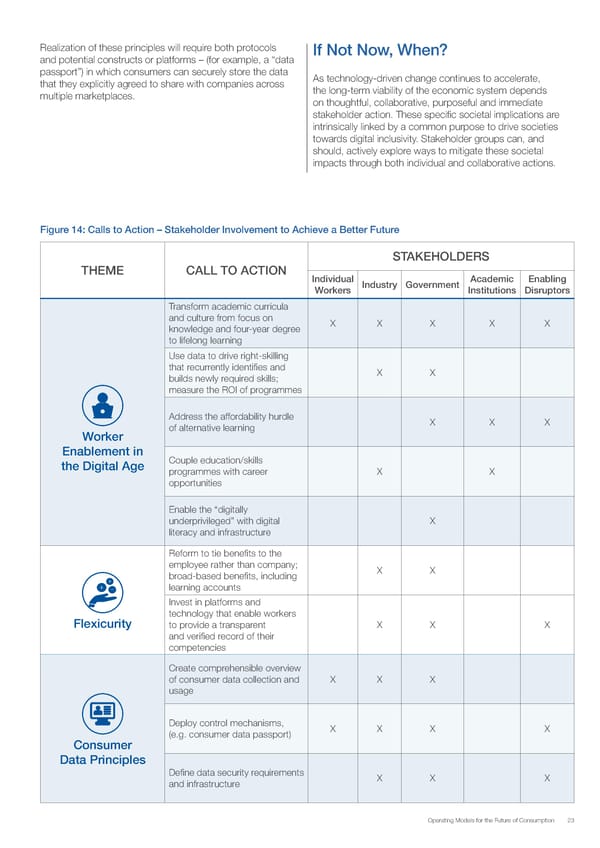Realization of these principles will require both protocols If Not Now, When? and potential constructs or platforms – (for example, a “data passport”) in which consumers can securely store the data As technology-driven change continues to accelerate, that they explicitly agreed to share with companies across the long-term viability of the economic system depends multiple marketplaces. on thoughtful, collaborative, purposeful and immediate stakeholder action. These specific societal implications are intrinsically linked by a common purpose to drive societies towards digital inclusivity. Stakeholder groups can, and should, actively explore ways to mitigate these societal impacts through both individual and collaborative actions. Figure 14: Calls to Action – Stakeholder Involvement to Achieve a Better Future STAKEHOLDERS THEME CALL TO ACTION Individual Academic Enabling Workers Industry Government Institutions Disruptors Transform academic curricula and culture from focus on X X X X X knowledge and four-year degree to lifelong learning Use data to drive right-skilling that recurrently identifies and X X builds newly required skills; measure the ROI of programmes Address the affordability hurdle X X X Worker of alternative learning Enablement in Couple education/skills the Digital Age programmes with career X X opportunities Enable the “digitally underprivileged” with digital X literacy and infrastructure Reform to tie benefits to the employee rather than company; X X broad-based benefits, including learning accounts Invest in platforms and technology that enable workers Flexicurity to provide a transparent X X X and verified record of their competencies Create comprehensible overview of consumer data collection and X X X usage Deploy control mechanisms, X X X X (e.g. consumer data passport) Consumer Data Principles Define data security requirements X X X and infrastructure Operating Models for the Future of Consumption 23
 Operating Models for the Future of Consumption Page 22 Page 24
Operating Models for the Future of Consumption Page 22 Page 24